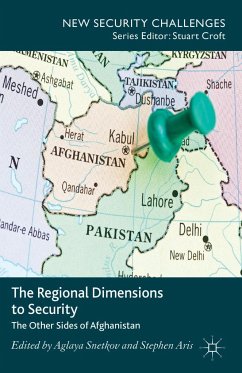
Security, Democracy and War Crimes
Security Sector Transformation in Serbia
Versandkostenfrei!
Versandfertig in 6-10 Tagen
38,99 €
inkl. MwSt.
Weitere Ausgaben:

PAYBACK Punkte
19 °P sammeln!
This book examines how the war crime legacy resulting from the Yugoslav war of the 1990s on political and military transformation in Serbia was an impediment to security reform, democratization and the achievement of Western standards in the Belgrade armed forces.














